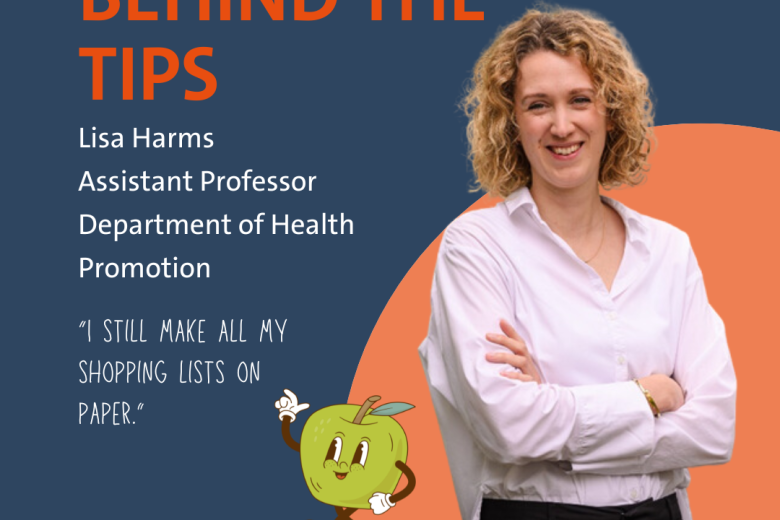Evidence-based health tips for students: the science of eating healthy
In the upcoming months, we’ll share tips for our students on how to live a healthier life. Not just a random collection, but tips based on actual research happening at our faculty. The brains behind this idea are Lieve Vonken and Gido Metz, PhD candidates at CAPHRI, the Care and Public Health Research Institute and researchers at the Department of Health Promotion. In this edition, Kathelijne Bessems covers eating healthy and tasty on a budget.
Eating healthy, sustainable and quick can be challenging for students with a tight budget and busy schedule. However, small changes can be enough to make a change and become more aware of what you eat. Kathelijne Bessems, Assistant Professor at the Department of Health Promotion presents three solid evidence-based tips for a healthier diet. Let us know what worked! The reference list can be found here
Barriers to overcome
Do you pay attention to your diet but find it difficult to eat healthy? The barriers that students often face are the cost of food, lack of time and sub-optimal cooking skills (ref.1). In fact, it is well known that nutrient-rich foods tend to be more expensive than nutrient-poor foods (ref.2). So yes, healthy eating can be challenging. But with a few tips, you can also prepare a tasty, quick and healthy meal at a reasonable cost.
Choose smart: affordable, quick and easy healthy meals
Small portions of food, including vegetables, are relatively more expensive than large portions. So if you are cooking a meal for one person, it will tend to be relatively more expensive. Try preparing a recipe for several days and freezing it in portions. Or buy a larger portion of your vegetables and make a stew on the first day and use it in a soup or salad the next day for a variety of tasty dishes.
Buying seasonal vegetables is also relatively cheap. Finally, preparing a healthy meal does not have to be difficult. Have you tried a vegetable omelette with wholemeal bread? Easy to make and quick to serve!
Small steps, sustainable habits
Want to make your food healthier? Take a regular recipe and replace one ingredient with a healthier alternative. Try substituting wholemeal for white rice, pulses for meat or add a tangerine to your morning yoghurt. Don't make drastic changes, but set small goals: small changes are more effective in becoming sustainable habits (ref.3-4).
Also read
-
The Green Office Catalyses Circularity Projects’ Autonomy
This semester, the Green Office cultivated the untapped potential of the Community Garden and the Clothing Swap Room. We hope that these Circularity Projects will operate under autonomous, functional organisations by this time next year, with continued support from the Green Office and the SUM2030 team... -
Evidence-based health tips for students: supermarket psychology
In the upcoming months, we’ll share tips on Instagram for our students on how to live a healthier life. Not just a random collection, but tips based on actual research happening at our faculty. The brains behind this idea are L ieve Vonken and Gido Metz, PhD candidates at CAPHRI, the Care and Public...
-
Evidence-based health tips for students: the science of love and sex
In the upcoming months, we’ll share tips on Instagram for our students on how to live a healthier life. Not just a random collection, but tips based on actual research happening at our faculty. The brains behind this idea are L ieve Vonken and Gido Metz, PhD candidates at CAPHRI, the Care and Public...